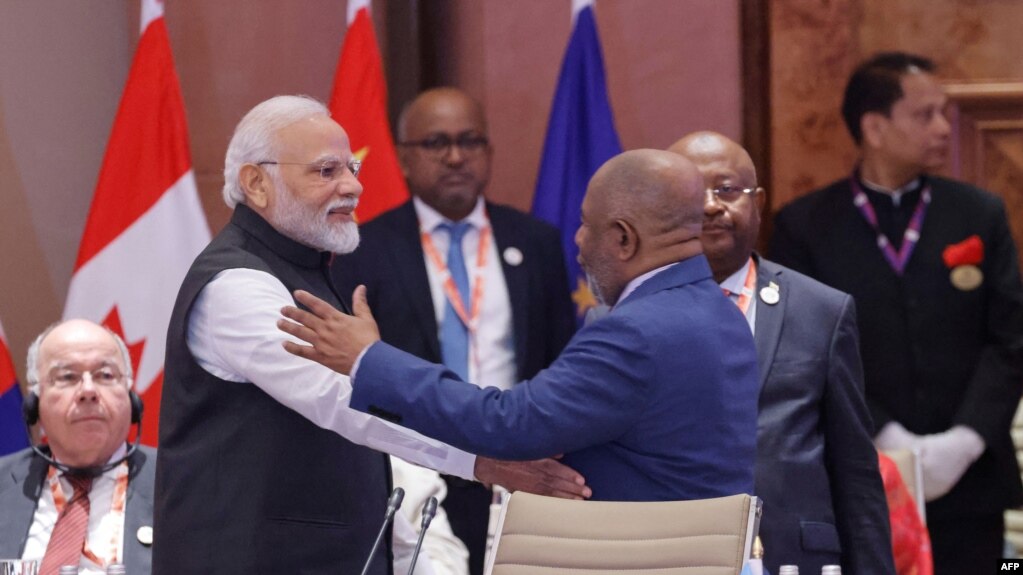The addition of the African Union into the Group of 20 (G20), an economic forum comprising the world’s twenty largest economies, gives a much-needed boost to the Global South’s presence on the world stage.
Last year, President Biden called the introduction of the African Union, which is composed of 55 member states, into the G20 as “long overdue”. Previously, South Africa was the only African nation with G20 membership. This year, the G20 Summit, hosted by Indian Prime Minister Narendra Modi in early September, put developing countries at the forefront of the agenda. The decision to grant permanent membership to the African Union (AU), whose previous status was “invited international organization”, was met by widespread support.
What does this mean for the African Union?
While there is much work still to be done, Kenyan president William Ruto says the decision will increase Africa’s voice within the group. The G20 comprises 75% of the world’s GDP, and its influence will only grow. Dennis Matanda, professor of international business, explains that “[Africa] need[s] to come to the table with the best people who can actually control the finances and basically channel those resources to…achieve the most effective impact for the region.”
The AU’s member states have long called for increased participation in global forums; now they have a direct say over policies that affect member nations. In addition, they are seeking reforms to institutions like the World Bank, where African nations are forced to pay higher borrowing costs than other countries. Similarly, because the continent has an abundance of natural resources, African leaders want industrial development closer to home, to prevent resource processing and profits being taken overseas.
However, all things may be easier said than done: “The AU seat at the G20 will be meaningless” if the African body does not find a way to work together, says Rober Bessling, chief officer of an intelligence advisory group in South Africa. The African Union, created to maintain stability and peace on the continent, has recently been plagued by armed conflicts. In the past decade, Africa has “experienced no fewer than 10 coups”, marked by political instability and democratic backsliding.
The African Union’s new seat on the global table, however, may help force consensus and coherence among AU members. Dennis Matanda, professor of international business, says that “The African Union needs to undertake a comprehensive assessment of its opportunities.” Having a say among the most powerful economies around the world may be exactly what the AU needs.
How will this impact other nations?
In the past, G20 policies such as the G20’s Common Framework for Debt Treatment have unfairly harmed low-income nations with no one to balance the scales. Now, the African Union can act as a counterweight to make sure that future initiatives are truly benefiting all countries, not just creditors and lenders.
Finally, the AU can use its membership to push richer nations to turn climate rhetoric into real, tangible implementation. Africa is disproportionately harmed by the climate crisis, while only accounting for 4% of emissions. Mackey Sall, president of Senegal, stated that “Pledges haven’t been fulfilled…There have been some efforts, but they’ve been below our expectations.” Now, the AU can hold countries accountable for their actions.
The decision to grant the African Union permanent membership to the Group of 20 holds remarkable potential, both for the AU’s member states themselves and for the global community as a whole. If the African Union can overcome its own divisions, it brings a new perspective into the G20, a much-needed voice to represent developing nations.


